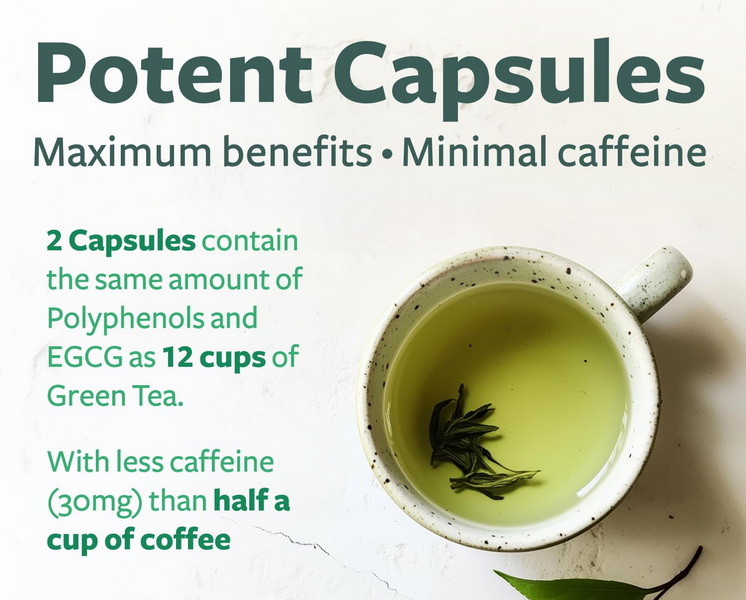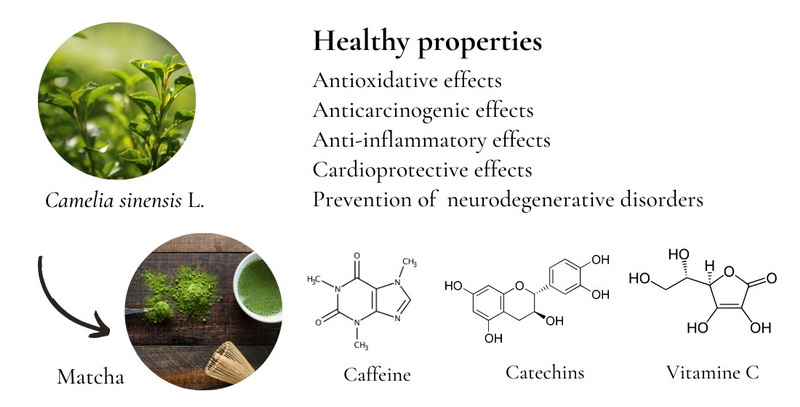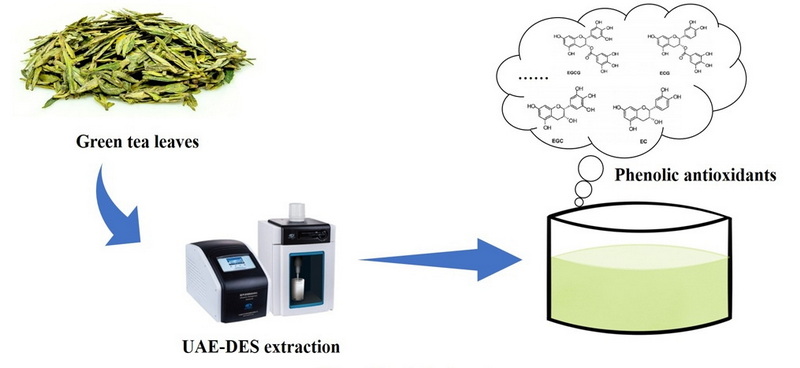Content Menu
● Understanding Green Tea Extract
>> Benefits of Green Tea Extract
● Caffeine Content in Green Tea Extract
● Can You Take Green Tea Extract with Caffeine?
● Potential Side Effects of Combining Green Tea Extract and Caffeine
● How to Safely Incorporate Green Tea Extract and Caffeine
● The Science Behind Green Tea Extract and Caffeine
● Benefits for Weight Loss
● Effects on Brain Function
● Precautions When Combining Supplements
● Conclusion
● FAQs
>> 1. What are the main benefits of green tea extract?
>> 2. How much caffeine is typically found in green tea extract?
>> 3. Can I take green tea extract if I am sensitive to caffeine?
>> 4. Is it safe to consume multiple caffeinated products together?
>> 5. What should I do if I experience side effects from taking these supplements?
● Citations:
Green tea extract is a popular supplement known for its numerous health benefits, including weight loss, improved brain function, and antioxidant properties. However, many people wonder about the safety and efficacy of combining green tea extract with caffeine. This article will explore the relationship between green tea extract and caffeine, their respective benefits, potential side effects, and how to safely incorporate them into your routine.

Understanding Green Tea Extract
Green tea extract is derived from the leaves of the *Camellia sinensis* plant. It is rich in polyphenols, particularly catechins like epigallocatechin gallate (EGCG), which are responsible for many of its health benefits. Unlike regular green tea, which is brewed in water, green tea extract is concentrated and often available in capsule or powder form.
Benefits of Green Tea Extract
- Antioxidant Properties: Green tea extract is loaded with antioxidants that combat oxidative stress and may reduce the risk of chronic diseases.
- Weight Loss: Studies suggest that green tea extract can aid in weight loss by enhancing metabolic rate and fat oxidation.
- Brain Health: The catechins in green tea extract may help protect brain cells from damage and improve cognitive function.
- Heart Health: Regular consumption of green tea extract has been associated with improved heart health by lowering cholesterol levels and blood pressure.
Caffeine Content in Green Tea Extract
Caffeine is a natural stimulant found in various plants, including tea leaves. The caffeine content in green tea extract can vary significantly depending on the brand and formulation. Generally, one serving of green tea extract may contain anywhere from 15 mg to over 200 mg of caffeine. For comparison:
| Beverage | Caffeine Content (mg) |
| Brewed Green Tea | 25-29 |
| Brewed Coffee | 95-165 |
| Green Tea Extract | 15-200+ |
Can You Take Green Tea Extract with Caffeine?
Yes, you can take green tea extract with caffeine. In fact, some studies suggest that combining caffeine with green tea extract may enhance its weight loss effects. The synergy between caffeine and catechins can lead to increased energy expenditure and fat oxidation.
However, it is essential to monitor your total caffeine intake from all sources to avoid potential side effects.
Potential Side Effects of Combining Green Tea Extract and Caffeine
While moderate consumption of both green tea extract and caffeine is generally safe for most people, excessive intake can lead to several side effects:
- Jitters and Anxiety: High doses of caffeine can cause restlessness, anxiety, and jitteriness.
- Insomnia: Consuming caffeine late in the day can interfere with sleep patterns.
- Increased Heart Rate: Some individuals may experience palpitations or an elevated heart rate when consuming high amounts of caffeine.
- Digestive Issues: Both green tea extract and caffeine may cause stomach upset or nausea in sensitive individuals.
How to Safely Incorporate Green Tea Extract and Caffeine
To safely incorporate both into your routine:
1. Start Slow: If you are new to either supplement, begin with a lower dose to assess your tolerance.
2. Monitor Total Caffeine Intake: Keep track of your daily caffeine consumption from all sources (coffee, tea, supplements) to avoid exceeding recommended limits (generally up to 400 mg per day for most adults).
3. Consult a Healthcare Professional: If you have pre-existing health conditions or are taking medications that interact with caffeine or green tea extract, consult your doctor before starting these supplements.

The Science Behind Green Tea Extract and Caffeine
Research has shown that both green tea extract and caffeine can have beneficial effects on metabolism. A study published in *The American Journal of Clinical Nutrition* found that a combination of catechins from green tea and caffeine significantly increased energy expenditure over a 24-hour period compared to a placebo group[1].
Moreover, another study indicated that participants who consumed a combination of EGCG (the main catechin in green tea) and caffeine experienced greater fat oxidation during exercise than those who consumed either substance alone[2]. This suggests that the combination may be particularly effective for individuals looking to improve their fitness routines or lose weight.
Benefits for Weight Loss
The combination of green tea extract and caffeine has been linked to weight loss benefits due to their effects on thermogenesis—the process by which your body burns calories to produce heat. Research indicates that this combination can increase metabolic rate by up to 8% over a 24-hour period[3].
Additionally, studies have shown that individuals who consume both green tea extract and caffeine tend to have lower body fat percentages compared to those who do not include these substances in their diet[4]. This might be due to enhanced fat oxidation during exercise as well as reduced appetite.
Effects on Brain Function
Both green tea extract and caffeine have been found to improve cognitive function. Caffeine is known for its ability to enhance alertness and concentration. When combined with EGCG, studies suggest that these compounds may work synergistically to boost memory performance[5].
A study involving participants who consumed beverages containing both EGCG and caffeine showed improved task performance on memory tests compared to those who consumed only one or neither[6]. This indicates that combining these two substances might be beneficial for cognitive enhancement.
Precautions When Combining Supplements
While there are many benefits associated with taking green tea extract alongside caffeine, it's essential to consider potential interactions with medications or health conditions:
- Blood Thinners: Individuals taking anticoagulant medications should consult their healthcare provider before using green tea extracts as they may increase bleeding risk due to vitamin K content[3].
- Anxiety Disorders: Those prone to anxiety may want to limit their intake of stimulants like caffeine since they can exacerbate symptoms[3][6].
- Heart Conditions: People with existing heart issues should be cautious as both substances can elevate heart rate[3].
Conclusion
Combining green tea extract with caffeine can be beneficial for enhancing energy levels, supporting weight loss efforts, and improving cognitive function. However, it's crucial to be mindful of your overall caffeine intake to avoid adverse effects. As always, consult a healthcare professional if you have concerns about incorporating these supplements into your routine.

FAQs
1. What are the main benefits of green tea extract?
Green tea extract offers several benefits including antioxidant properties, weight loss support, improved brain function, and enhanced heart health.
2. How much caffeine is typically found in green tea extract?
Caffeine content can vary widely but typically ranges from 15 mg to over 200 mg per serving depending on the brand.
3. Can I take green tea extract if I am sensitive to caffeine?
If you are sensitive to caffeine, it's advisable to start with a low dose or consider decaffeinated options to minimize potential side effects.
4. Is it safe to consume multiple caffeinated products together?
While it can be safe for many people to consume multiple caffeinated products, it's essential to monitor total intake to avoid exceeding recommended limits.
5. What should I do if I experience side effects from taking these supplements?
If you experience side effects such as anxiety or digestive issues after taking green tea extract or caffeine, consider reducing your dosage or consulting a healthcare professional for guidance.
Citations:
[1] https://www.scirp.org/journal/paperinformation?paperid=74660
[2] https://pmc.ncbi.nlm.nih.gov/articles/PMC7305783/
[3] https://www.mountsinai.org/health-library/herb/green-tea
[4] https://pubmed.ncbi.nlm.nih.gov/32587821/
[5] https://www.healthline.com/nutrition/10-benefits-of-green-tea-extract
[6] https://www.webmd.com/vitamins/ai/ingredientmono-960/green-tea
[7] https://www.psu.edu/news/research/story/research-suggests-green-tea-exercise-boost-weight-loss-health
[8] https://pmc.ncbi.nlm.nih.gov/articles/PMC3649093/
[9] https://pmc.ncbi.nlm.nih.gov/articles/PMC8830767/
[10] https://www.medicalnewstoday.com/articles/269538






























